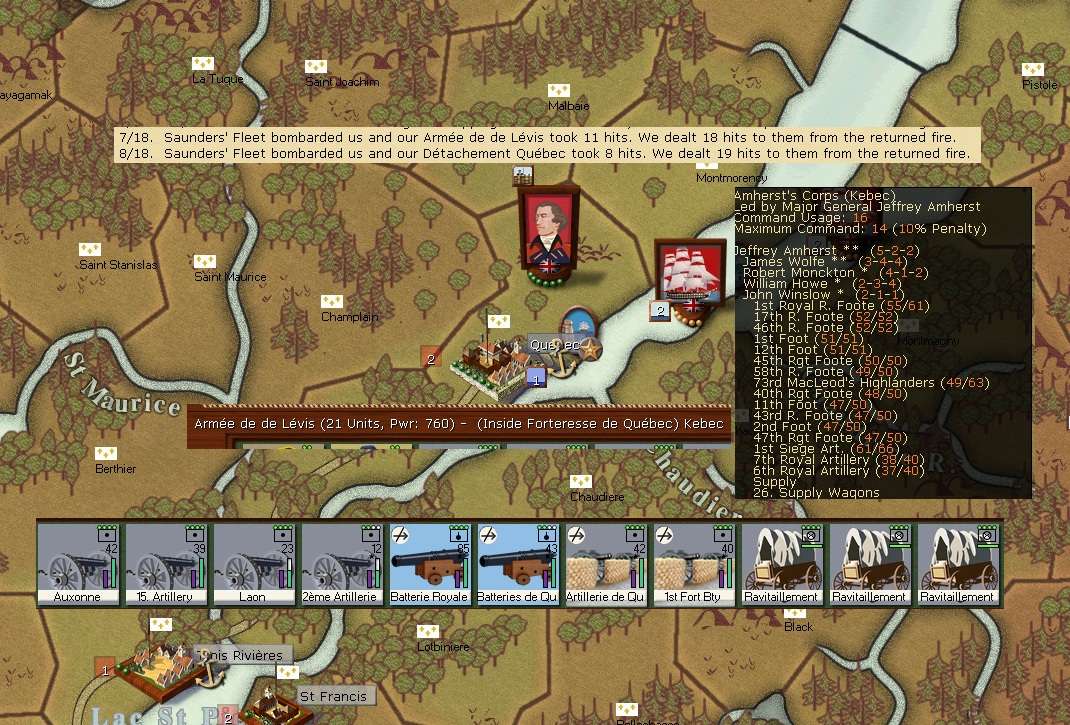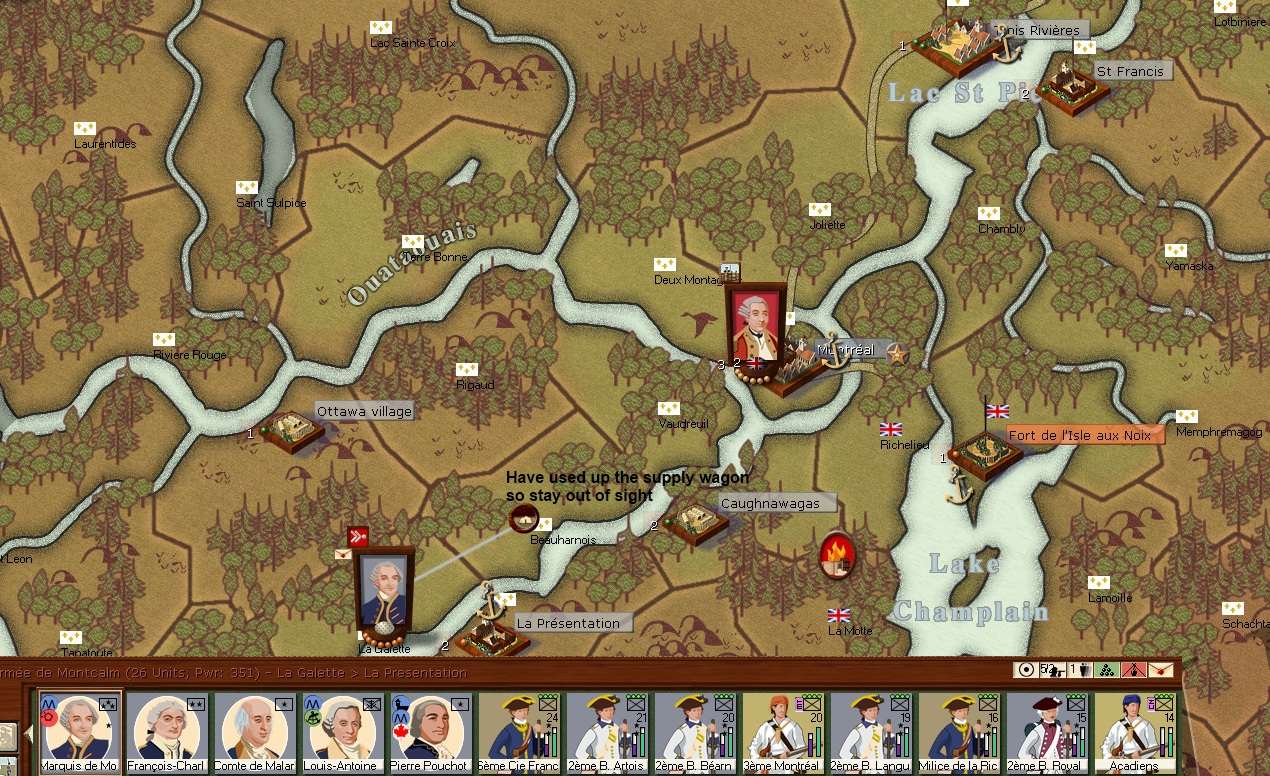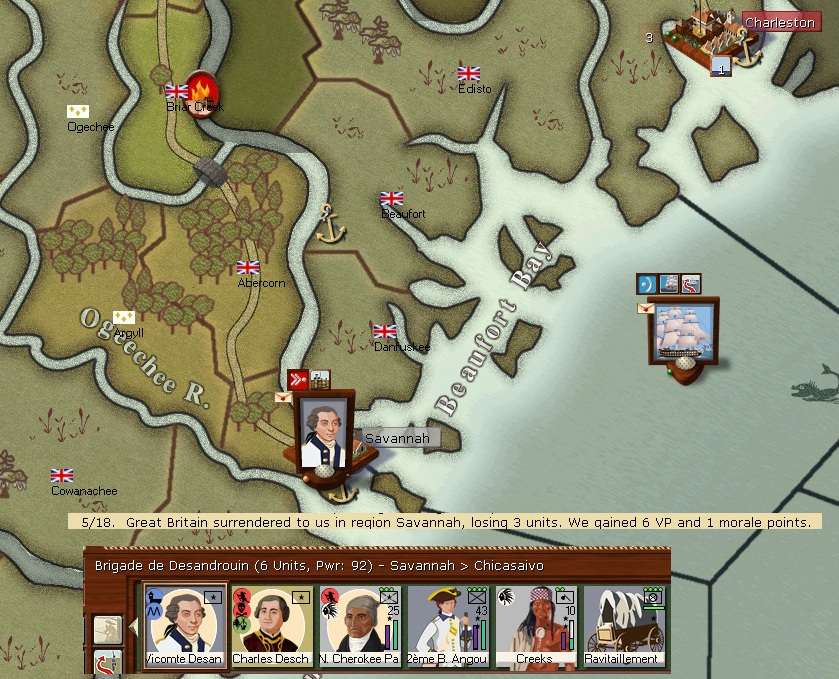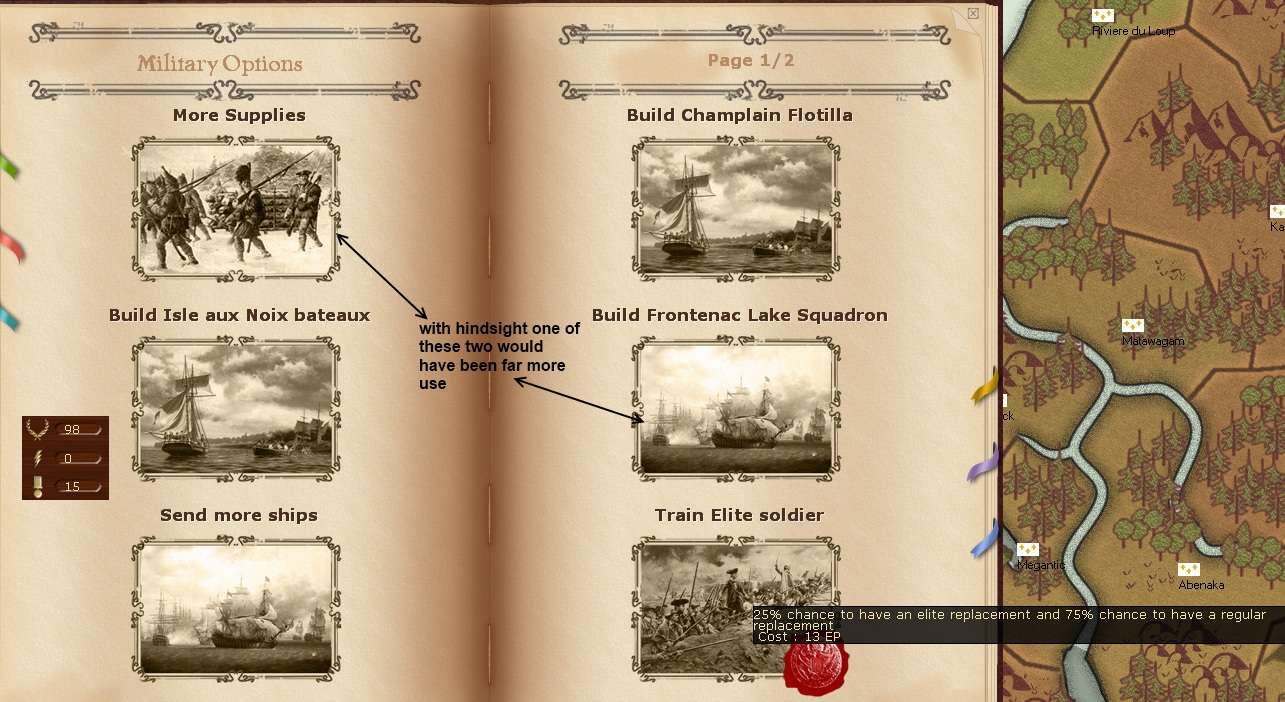August 1759 - the war hots up
Moving into August 1759, the war becomes even busier. My worry is getting Montcalm back to supply (as in the comments above I ignored the obvious and simple solution of building a depot at Fontesac) and I think Narwhal tried to take advantage of Montcalm being away from Mont Royal.
Anyway:
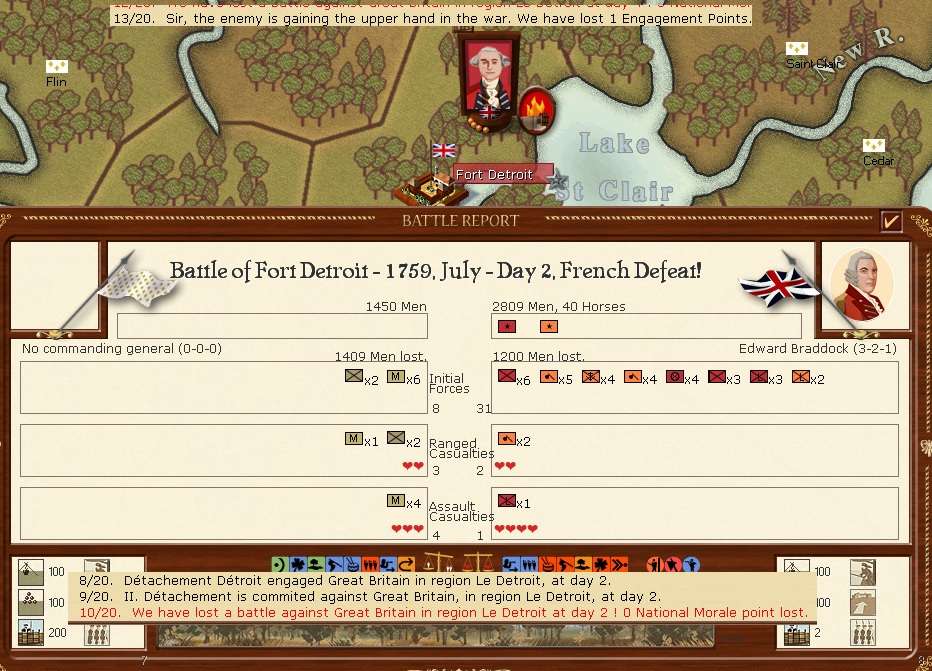
No surprise. Of course those Indian villages out there are now very exposed but I'm sure that Narwhal won't attack such defenseless places ... ?

and one of his columns attacks Mont Royal, Montcalm is at least 1 turns march away and with diminished supply (despite meeting up with the supply wagon I sent - should have sent 2). Anyway, its easily held and I doubt that it will be in direct danger this year.
Note that for some reason Narwhal had ordered his troops to concentrate on killing my loyal Indians ... why?

A bit of a wierd battle. Obviously a column arrives in St Frederick just as I attack, so I get badly beaten - but if you note Narwhal lost some elements in retreat. So my guess is he must have had relatively cautious orders and broke off despite the victory.
Writing this up now, I think I should have split up Montcalm's force and taken the best bit across to St Frederick, if it had worked the pay off would have been the destruction of that English force at Mont Royal, but of course the risk was the destruction of my only really mobile force.
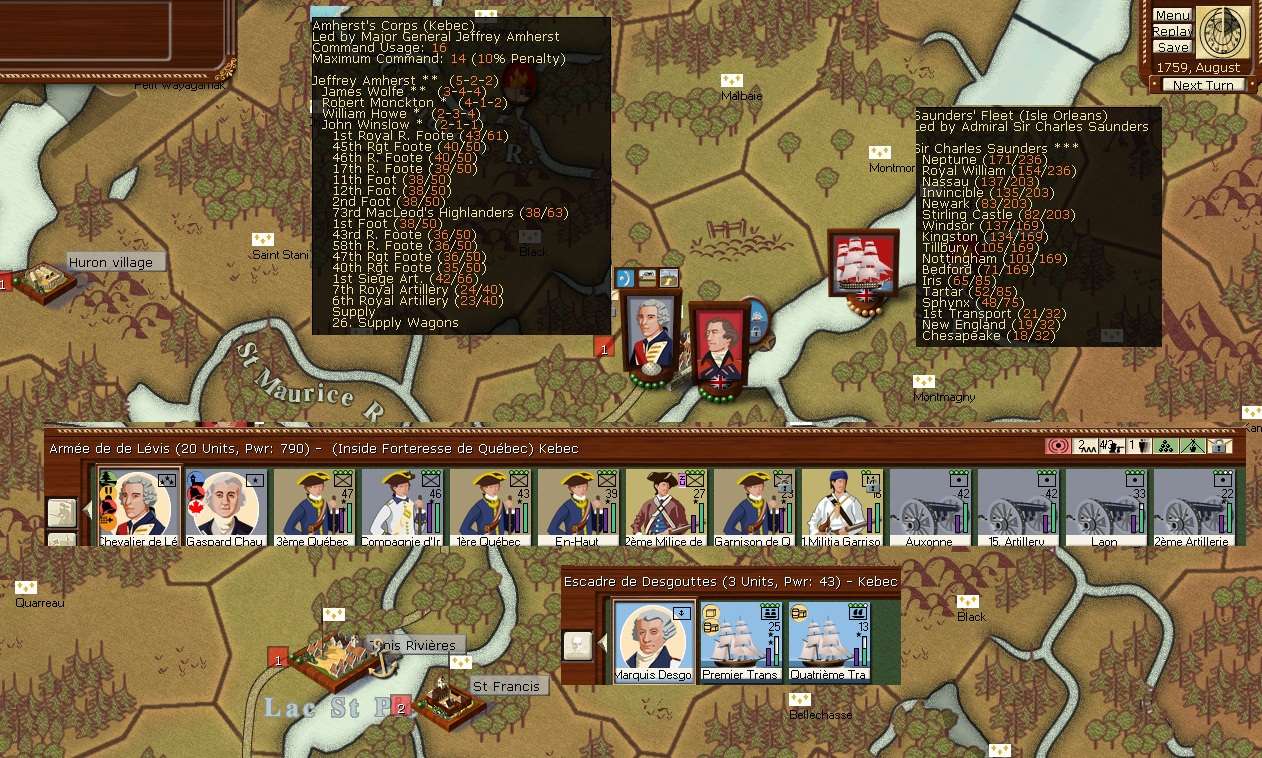
At Quebec the English arrive (I've shown the relative strengths of the fleets too). To put the discussion above in context, my mobile force has about 350-380 power (the other 400 being fixed militia and the fort guns), that English force is about 600. So I'm not utterly sure I made the wrong choice to defend. They only have 2 supply units, so we'll order up some extra delicious baguettes and settle down to enjoy the city life ... every now and then hurling insults over the walls[1].
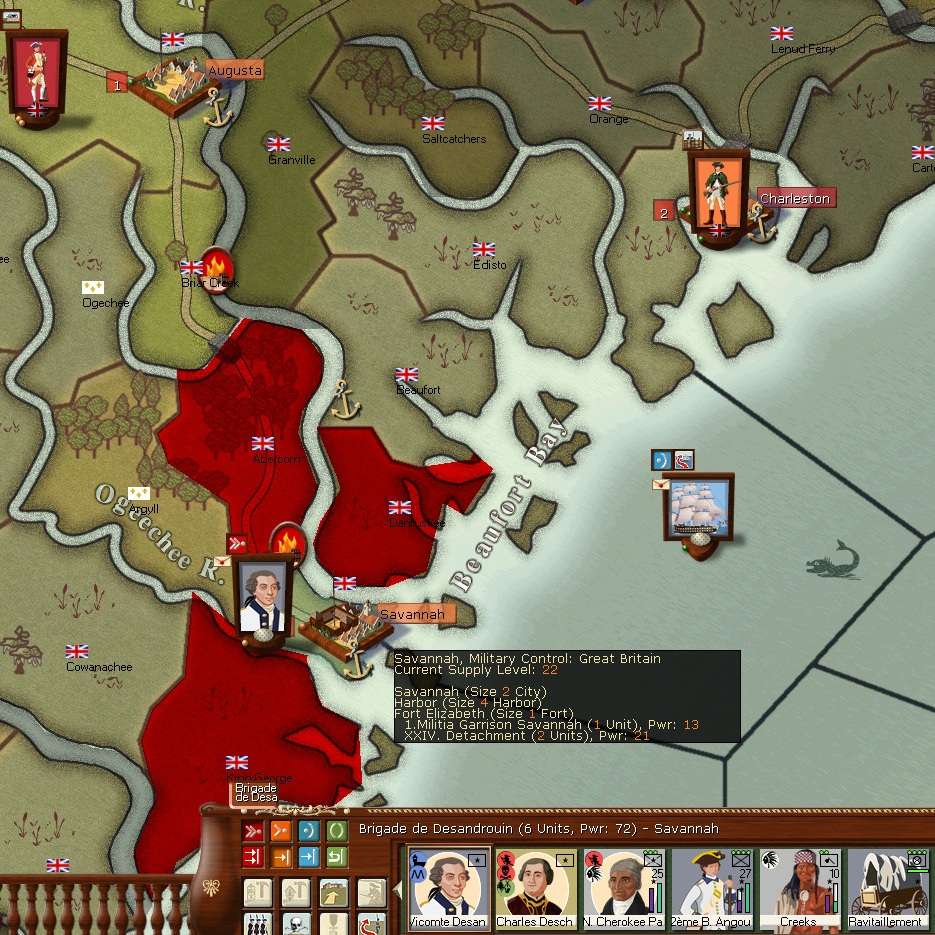
and Savannah gets a new visit. Should be able to take it next turn - I'm a bit worried that Narwhal left a reasonably force down there, but hopefully its mostly local militia.
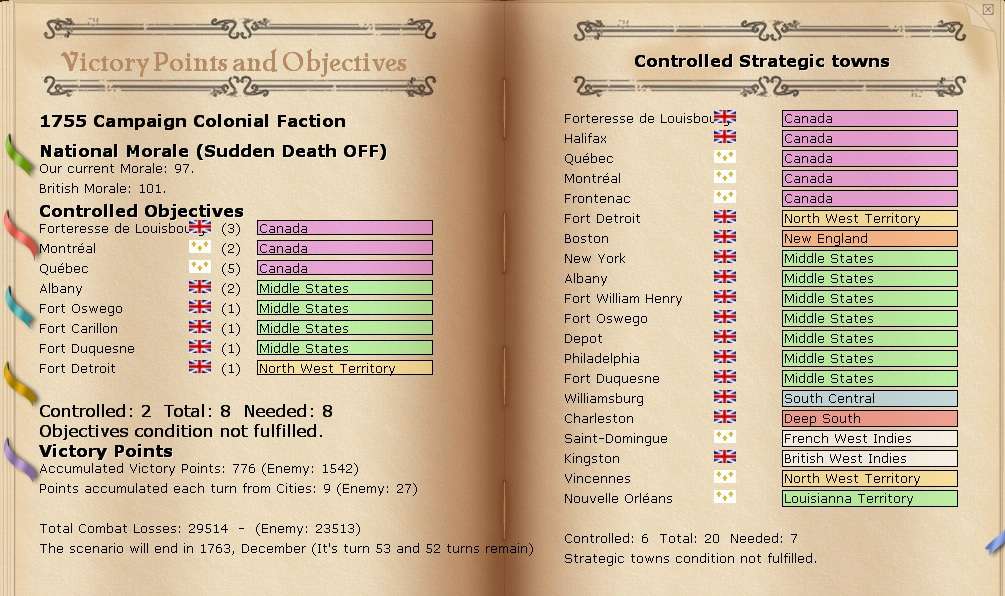
and with the fall of Detroit, I think I've lost, unless by some miracle I can recapture all the main VP cities. My only chance is to destroy one of the main English columns - unlikely but not impossible.
[1] - the Monty Python bit of course - I don't want to talk to you no more, you empty headed animal food trough wiper. I fart in your general direction. Your mother was a hamster and your father smelt of elderberries ... Is there someone else up there we can talk to? .... No, now go away or I shall taunt you a second time
Moving into August 1759, the war becomes even busier. My worry is getting Montcalm back to supply (as in the comments above I ignored the obvious and simple solution of building a depot at Fontesac) and I think Narwhal tried to take advantage of Montcalm being away from Mont Royal.
Anyway:

No surprise. Of course those Indian villages out there are now very exposed but I'm sure that Narwhal won't attack such defenseless places ... ?

and one of his columns attacks Mont Royal, Montcalm is at least 1 turns march away and with diminished supply (despite meeting up with the supply wagon I sent - should have sent 2). Anyway, its easily held and I doubt that it will be in direct danger this year.
Note that for some reason Narwhal had ordered his troops to concentrate on killing my loyal Indians ... why?

A bit of a wierd battle. Obviously a column arrives in St Frederick just as I attack, so I get badly beaten - but if you note Narwhal lost some elements in retreat. So my guess is he must have had relatively cautious orders and broke off despite the victory.
Writing this up now, I think I should have split up Montcalm's force and taken the best bit across to St Frederick, if it had worked the pay off would have been the destruction of that English force at Mont Royal, but of course the risk was the destruction of my only really mobile force.

At Quebec the English arrive (I've shown the relative strengths of the fleets too). To put the discussion above in context, my mobile force has about 350-380 power (the other 400 being fixed militia and the fort guns), that English force is about 600. So I'm not utterly sure I made the wrong choice to defend. They only have 2 supply units, so we'll order up some extra delicious baguettes and settle down to enjoy the city life ... every now and then hurling insults over the walls[1].

and Savannah gets a new visit. Should be able to take it next turn - I'm a bit worried that Narwhal left a reasonably force down there, but hopefully its mostly local militia.

and with the fall of Detroit, I think I've lost, unless by some miracle I can recapture all the main VP cities. My only chance is to destroy one of the main English columns - unlikely but not impossible.
[1] - the Monty Python bit of course - I don't want to talk to you no more, you empty headed animal food trough wiper. I fart in your general direction. Your mother was a hamster and your father smelt of elderberries ... Is there someone else up there we can talk to? .... No, now go away or I shall taunt you a second time


